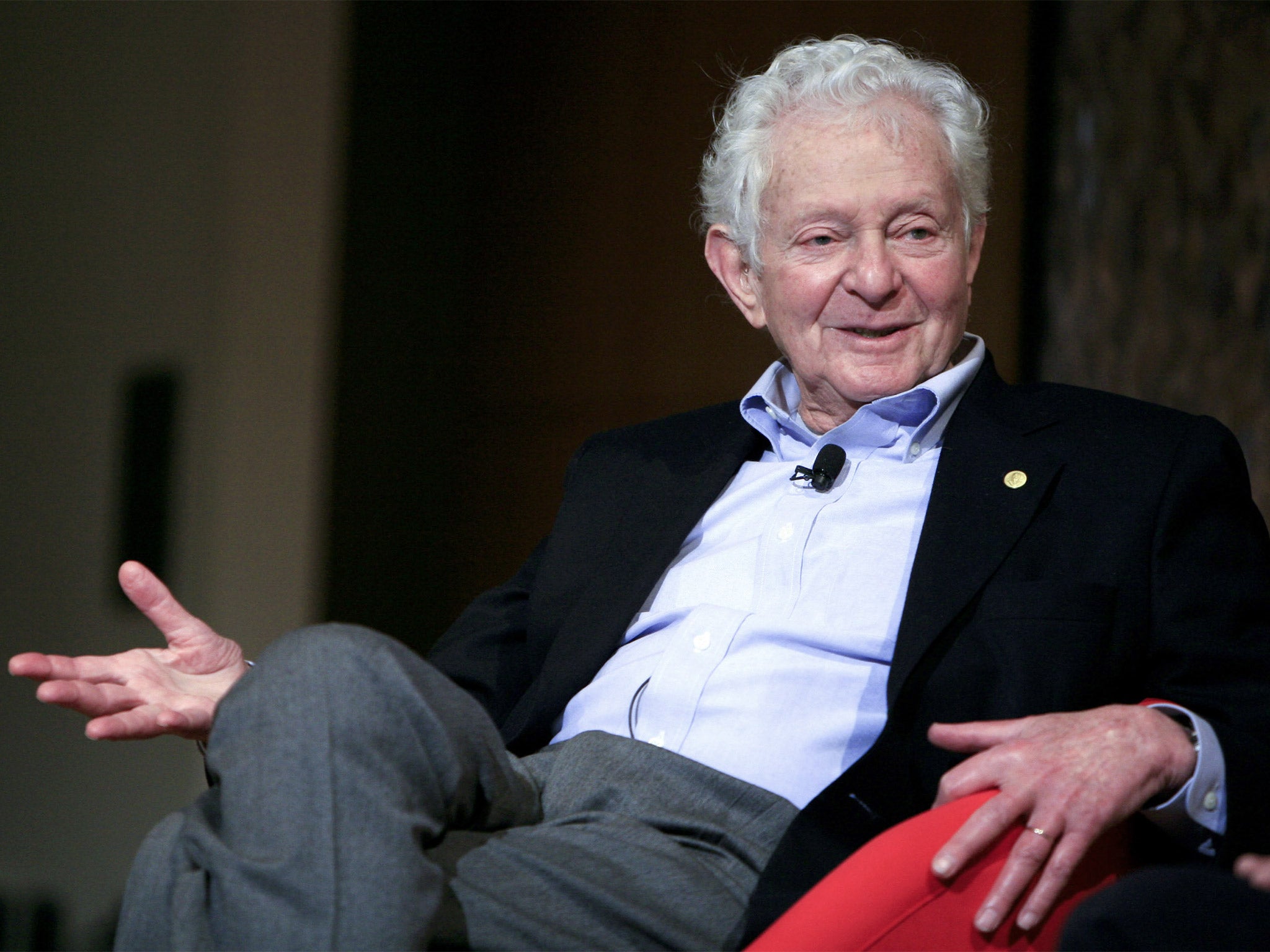Nobel laureate ‘God particle’ physicist Leon Lederman to sell off Nobel Prize gold medal
Lederman's work, which won him the prize in 1988, opened up the field of experimental quantum physcis

Your support helps us to tell the story
From reproductive rights to climate change to Big Tech, The Independent is on the ground when the story is developing. Whether it's investigating the financials of Elon Musk's pro-Trump PAC or producing our latest documentary, 'The A Word', which shines a light on the American women fighting for reproductive rights, we know how important it is to parse out the facts from the messaging.
At such a critical moment in US history, we need reporters on the ground. Your donation allows us to keep sending journalists to speak to both sides of the story.
The Independent is trusted by Americans across the entire political spectrum. And unlike many other quality news outlets, we choose not to lock Americans out of our reporting and analysis with paywalls. We believe quality journalism should be available to everyone, paid for by those who can afford it.
Your support makes all the difference.The scientist who coined the phrase the “God particle” will auction his Nobel Prize gold medal tomorrow – only the second time the medal of a living Nobel laureate has been offered for sale.
Dr Leon Lederman, 92, won the Nobel Prize in Physics in 1988 for the discovery in 1962 of the muon neutrino, a sub-atomic particle 200 times smaller than an electron – a find that helped to open up the field of quantum physics.
His wife, Ellen Lederman, said: “Leon has enjoyed owning the Nobel Prize medal for many years, but feels it is time for someone else who shares his love of science to treasure his medal. He hopes this sale raises awareness of physics.”
The American auction house Nate D Sanders has placed a reserve of $325,000 (£217,000) on Lederman’s medal, but it is expected to go for up to 10 times that given that it is only the 10th Nobel medal ever to go on sale.
The only other Nobel medal sold by a living laureate went for $4.1m this year. The purchaser, Alisher Usmanov, an Uzbek-born Russian businessman philanthropist and major shareholder in Arsenal football club, immediately donated it back to its original owner, James Watson, the co-discoverer of the DNA double helix. Dr Lederman, an early pioneer of high-energy particle accelerators to investigate the atomic nucleus, famously called another sub-atomic particle, the Higgs boson, the “God particle” because of its importance in the understanding of matter.
“This boson is so central to the state of physics today, so crucial to our final understanding of the structure of matter, yet so elusive, that I have given it a nickname: the God particle,” Lederman wrote in his 1993 book The God Particle: if the Universe is the Answer, What is the Question? “Why God particle? Two reasons. One, the publishers wouldn’t let us call it the Goddam particle, though that might be a more appropriate title, given its villainous nature and expense it is causing,” he wrote.
“And two, there is a connection, of sorts, to another book, a much older one,” added Lederman, a confirmed atheist of Jewish descent.
It is still unclear why he is selling the medal at such an advanced age.
Leon Lederman was born in New York City in 1927 to Russian immigrants. His father operated a laundry but venerated learning and education for his children, said Lederman, who started studying chemistry at university but switched to physics because of its logic and clarity.
Lederman worked in the 1960s at the particle accelerator at Cern near Geneva, where the Higgs boson was found in 2012, and later became the director of the Fermi National Accelerator Laboratory near Chicago, where he supervised the construction of the superconducting synchrotron – at one time was the highest energy sub-atomic particle accelerator in the world.
In addition to discovering the muon neutrino, for which he shared the 1988 Nobel Prize with Melvin Schwartz and Jack Steinberger, he also discovered a particle known as the “bottom quark” in 1977.
Lederman’s medal is made of 18ct gold plated with 24ct gold. The auction on Thursday in Los Angeles is being organised by Ellen, his second wife.
Join our commenting forum
Join thought-provoking conversations, follow other Independent readers and see their replies
Comments